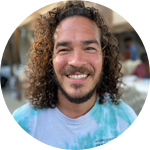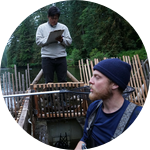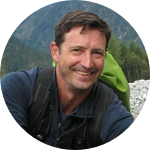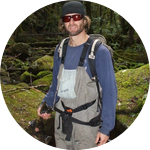About This Project
Wild salmon are central to cultures & ecosystems in British Columbia but are under unprecedented climate stress with increasing variability in returns. Computer-vision is revolutionizing data processing and analysis, but rural & Indigenous people have rarely been included in the scoping and development of these tools. Working with Haida Nation and computer scientists at SFU we will use computer-vision to automate salmon counting for Indigenous-led management.
Ask the Scientists
Join The DiscussionWhat is the context of this research?
Wild salmon are fundamental to social-ecological systems of the Northeastern Pacific Rim. In an era of accelerating climate change, salmon are experiencing unprecedented challenges for their survival and abundance. Yet, they have persisted through multiple periods of glaciation and remain capable of supporting livelihoods & food security across our region. With increasing variability in returns we need to move towards precautionary fisheries and transition to in-river and selective methods that balance harvest & conservation. The Haida sonar program on the Yakoun River requires significant staffing time during summer to estimate returns. Automated counting can power a shift to in-season management.
What is the significance of this project?
Indigenous Peoples around the North Pacific have fished for salmon for more than 10,000 years. Yet, rapid climate change is challenging the sustainability of salmon fisheries, leading to greater unpredictability in returns, undermining food security and livelihoods. Fisheries often over harvest salmon when returns are lower than expected, and fishers may miss opportunities during unexpected years of high abundance. Working with First Nations around British Columbia we are creating computer-vision models to automate counting & species identification for real-time data integration. This work can dramatically reduce staffing demands for processing data, enabling in-season management and allowing First Nations to prioritize other urgent work during salmon season.
What are the goals of the project?
This project is nested within a broader three-year initiative focused on co-developing computer-vision tools with First Nations in British Columbia. The requested funding will support a technician with the Haida Fisheries Program (HFP) to develop a sonar-specific dataset that can be used to train a computer-vision model for automated sonar counting on the Yakoun River. Specifically, we aim to label 5000 unique files using computer vision annotation software. These files will be used to train a computer-vision model for automated sonar counting, with a subset of files withheld from the training to validate the accuracy for computer- vision counts.
Budget
Funding will support about eight weeks of part time work (160 hours total) for a technician from the Haida Nation fishery program to label sonar files using Computer Vision Annotation (CVAT) software, and will supplement funding from a larger three-year initiative to build computer-vision models for automated salmon identification and counting. These files will be uploaded to an open access repository and then used to train a computer-vision model that can automate counting and length measurements from a sonar monitoring program that the Haida Nation operates on the Yakoun River.
Endorsed by
 Project Timeline
Project Timeline
Computer-vision models have already been built and tested, however sufficient training data remains a limiting factor for the refinement and application of the sonar counting model. We aim to build a training dataset during the summer and fall of 2022, and implementing automated counting on a trial basis in 2023 with the Haida Fishery Program. Training data and models will be posted on an open GitHub repository, and a peer reviewed publication will be submitted by March 2023.
Apr 20, 2022
Project Launched
Jul 01, 2022
Train Haida Technician in CVAT labelling for sonar model
Oct 31, 2022
HFP to generate 2022 sonar data for future analysis and model refinement
Dec 20, 2022
Label >5000 unique sonar files as training data for computer vision model
Jan 15, 2023
Post code and training data on open GitHub repository
Meet the Team
William I. Atlas
My research links scientific understanding of populations, ecosystems and climate, with the values, traditions and needs of human communities to promote the long-term sustainability of fisheries and coastal ecosystems. I have had a lifelong passion for salmon and the ecosystems they inhabit. This interest has led me to be involved in a variety of projects, from ongoing long-term research and monitoring of salmon populations in the Koeye River, to stock-assessment and simulation-based analyses focused on population and fishery dynamics. Since 2020 I have worked at Wild Salmon Center, co-creating research with Indigenous communities and government scientists, with the aim of addressing critical conservation-relevant gaps in our understanding of populations, fisheries and ecosystems.
Matthew Sloat
I have a lifetime passion for salmon watersheds that started with my childhood along the Kuskokwim River in western Alaska. Since joining Wild Salmon Center as the Science Director in 2015, my interests have centered on linking science with salmon stewardship and environmental decision making. This includes applying practical tools to improve population monitoring, recovery planning, and fisheries management.
Mark Spoljaric
Mark Spoljaric is a biologist with the Haida Fisheries Program. He has worked in Haida Gwaii since 2010 where he manages the Yakoun River sonar enumeration project as well as a wide variety of other community-based fisheries management, monitoring, and stewardship efforts.
Project Backers
- 9Backers
- 100%Funded
- $4,600Total Donations
- $511.11Average Donation



